24 hours with Fidji Simo
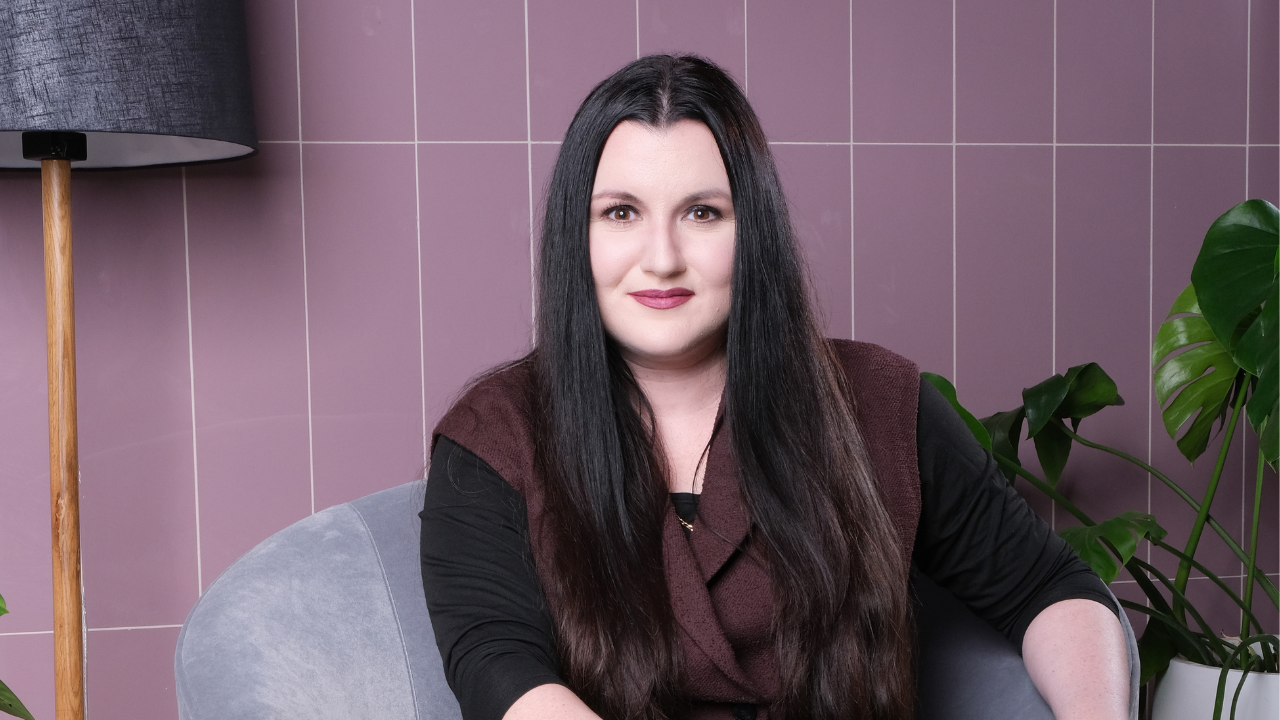
Formerly the head of Facebook, Fidji Simo took the reins of Instacart in 2021. Dive into the day of a French CEO living an all-American life in New York.
From north to south, from the Upper East Side to the Financial District, passing through Central Park, Soho, and Tribeca, people walk along avenues flanked by towering skyscrapers. Yellow taxis and big SUVs leave little room for the few bold cyclists and scooter riders. It’s in Chelsea that Fidji Simo has chosen to stay. Alongside her husband Rémy and their 9-year-old daughter Willow, Fidji lives in Los Angeles, and spends a lot of time in San Francisco where Instacart’s headquarters are located. But she regularly travels across the U.S.—her adopted country since 2007—to meet with her teams and partners.
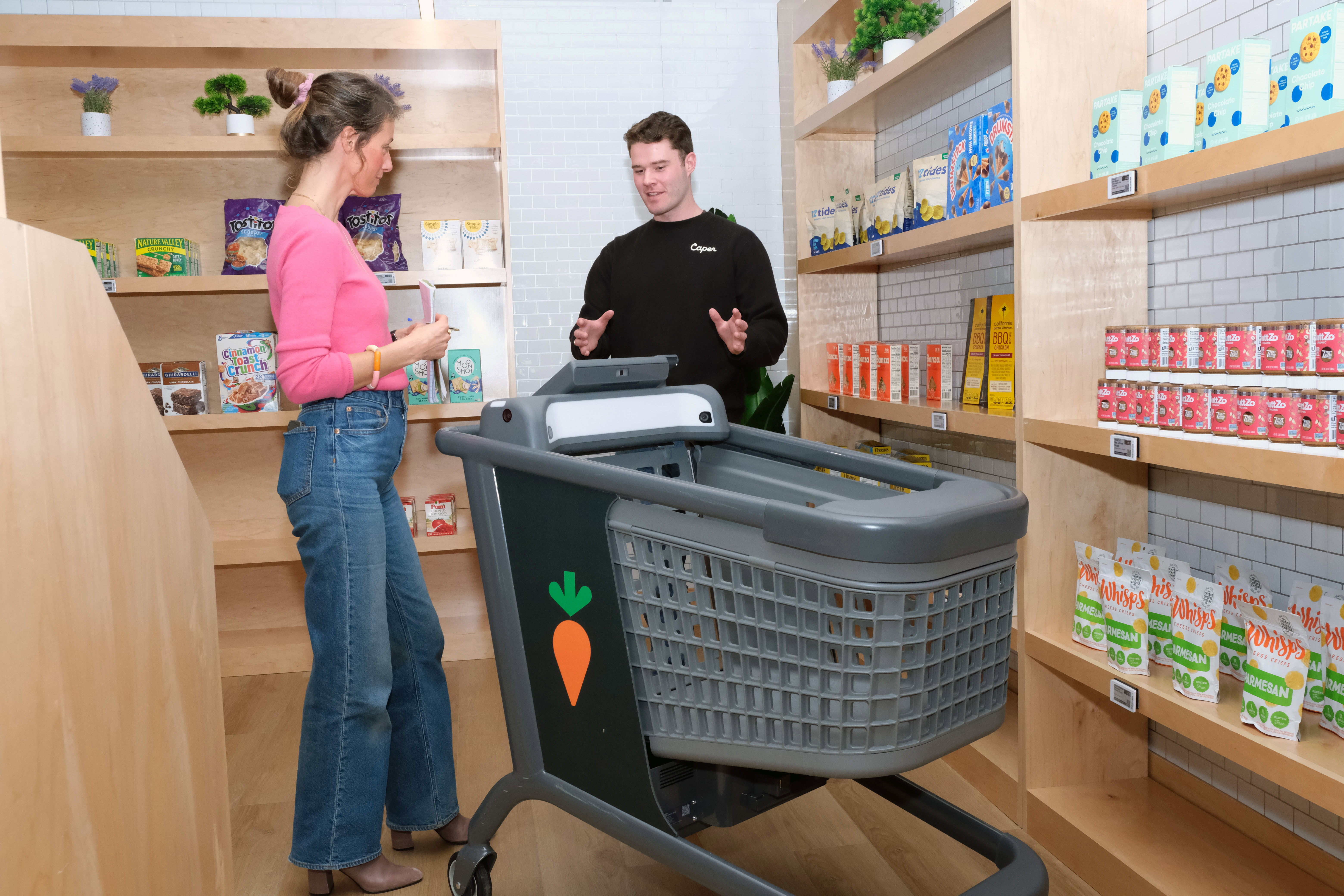
Instacart originally specialized in grocery delivery, relying on a network of independent couriers. It was founded in 2012 by Apoorva Mehta, a former Amazon engineer. After nearly a decade of growth, including a boom during COVID, the company began to decline. That’s when Instacart’s CEO role was handed over to Fidji Simo, a former Meta executive. Under her leadership, the company made a remarkable comeback, leading to its Nasdaq listing in 2023.
Today, Instacart offers not only delivery but also click-and-collect, in-store and advertising services. With offices in San Francisco, New York, and Toronto, the company employs more than 3,000 people, has millions of users, 600,000 shoppers, and partners with over 1,800 retailers across North America—covering about 85% of the U.S. grocery market (excluding alcohol), which represents over 100,000 physical stores. Here’s a look at one high-energy day in Fidji’s life, where she juggles multiple pursuits.
9h30. From flex to office
On 23rd Street and 6th Avenue, halfway between the Empire State Building and Union Square, Instacart’s New York office sits on the 9th floor of a classic NYC building. Huge fridges stocked with drinks and plant-based milk, unlimited fruit, coffee, tea, jars of Nutella (a staple in Fidji’s breakfast for years), and healthy breakfast items—all evoke classic Silicon Valley vibes.
Elegantly dressed in a dark Dior ensemble and 8 cm heels, Fidji walks in. “She gives a lot of hugs,” says Lyndsey Grubbs, her head of communications, as she watches Fidji warmly embrace colleagues. The office is buzzing. Product managers, data analysts, user experience leads, marketing staff, and software engineers—mostly between 25 and 40—crowd around their boss. Today, exceptionally, no one is working remotely, and some have even traveled across the city or beyond just to be in person with Fidji.
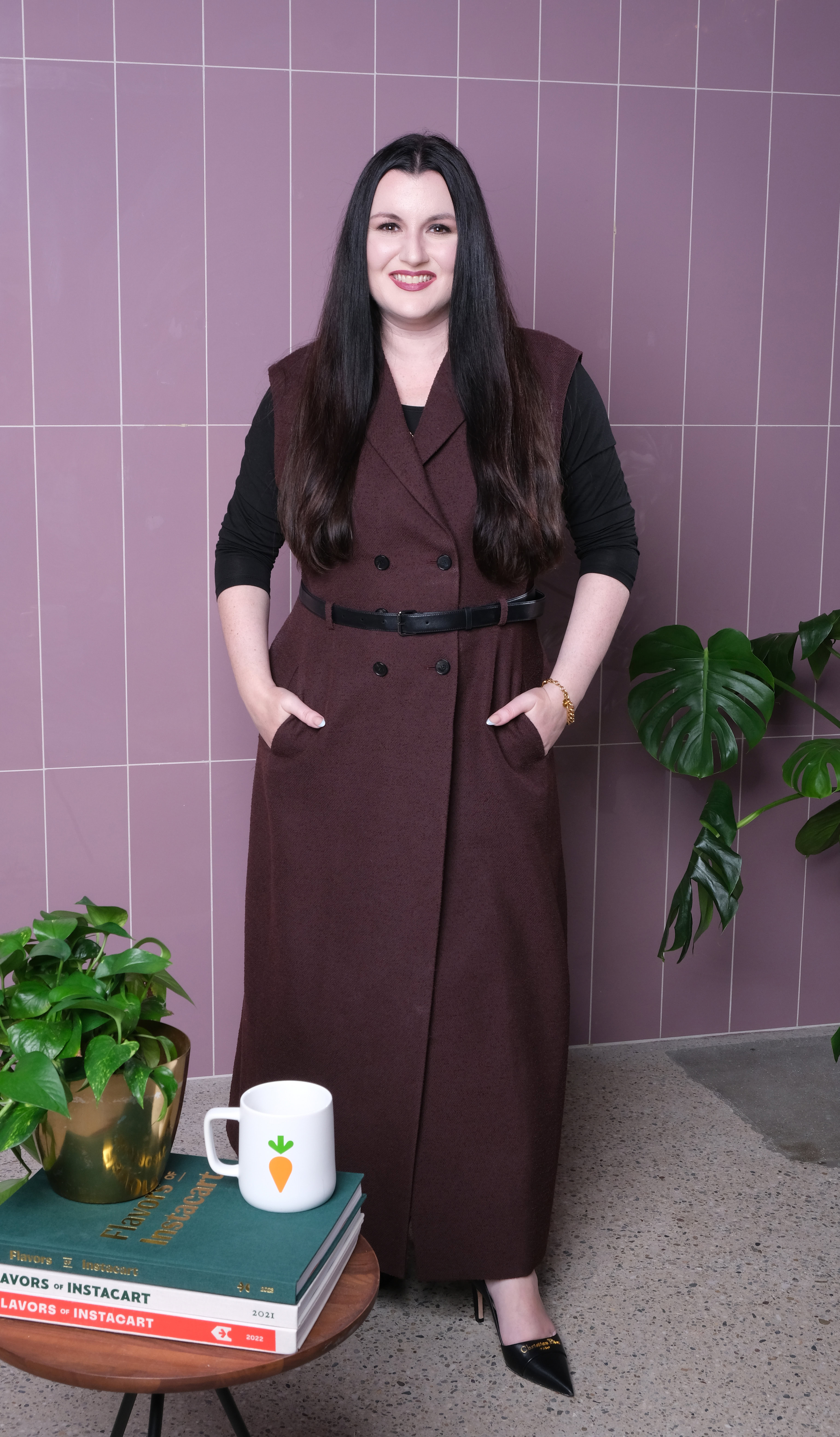
11:00 a.m. The Speech
“Thanks for being here, we’re going to have a great day,” Fidji says as she sits next to Heather Rivera, her VP of partnerships, to applause from around a hundred team members. She launches into a one-hour speech, in perfect English with a French accent. She shares her vision for the company and the strategy for its future.
“We’re seeing a lot of the seeds we planted begin to bear fruit,” she says. The company has introduced tools like Store View, for improved inventory management, and Second Store Check, which lets users see if out-of-stock items are available elsewhere. Since Fidji’s arrival, Instacart has ventured further into online advertising.
But it’s artificial intelligence that captures the most attention on this day. Instacart is exploring how AI can enhance internal efficiency and user experience. A standout innovation is Smart Shop, an AI-powered tool that customizes the shopping experience.
Simo, who joined the board of OpenAI in 2024, mentions the possibility of developing a family AI agent capable of handling daily tasks: “You’ll just need to tell your device you want your groceries delivered at this time, that you need ingredients for these three recipes, and the agent will take care of it,” she explains, clearly excited about the possibilities. Instacart seems to have embraced innovation as its growth engine.
By diversifying, the company is entering a new growth phase. “If you don’t take enough risks, you won’t succeed,” Fidji concludes—living proof that HEC’s lesson to “learn to dare” is still her guiding principle, nearly 20 years after graduation.
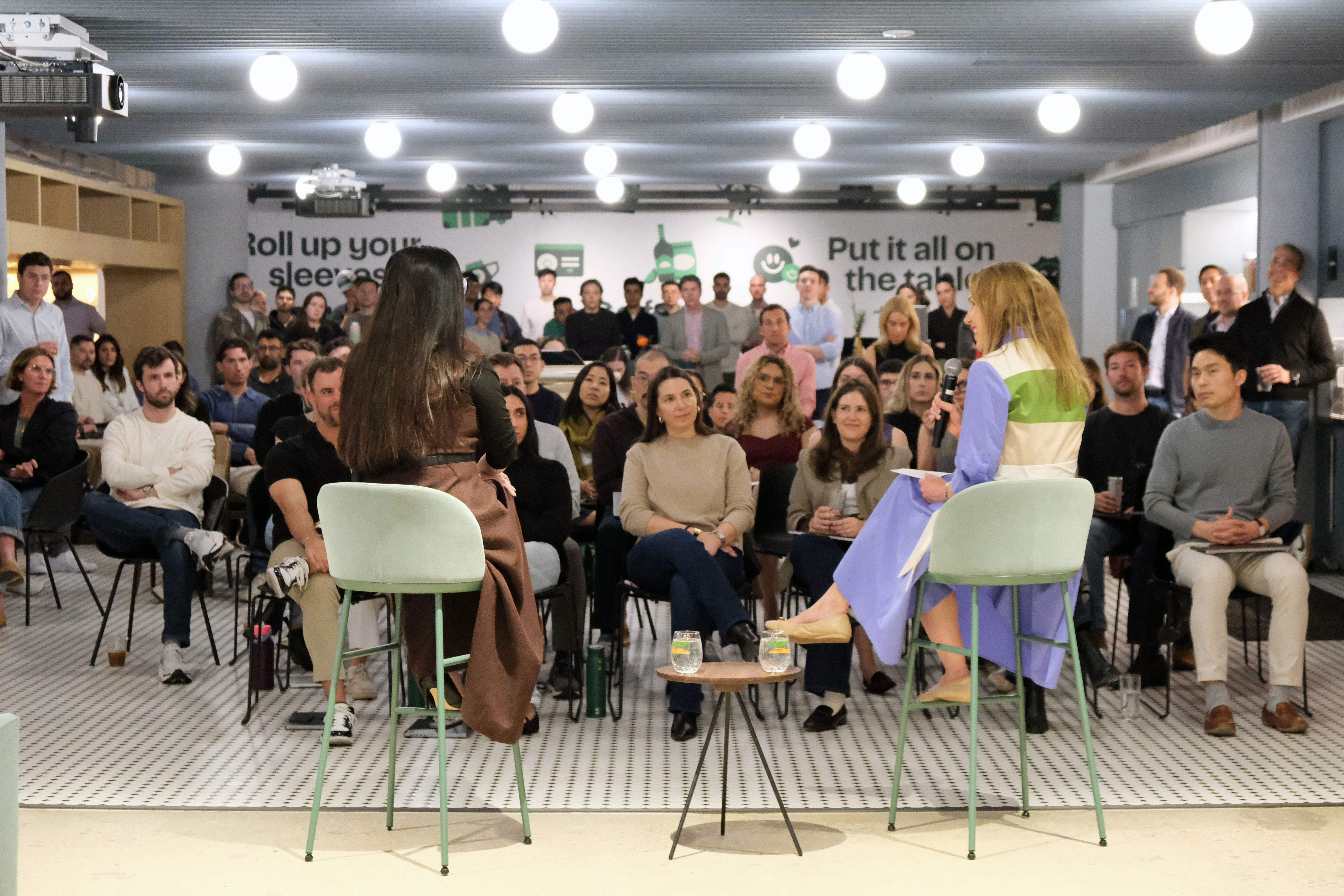
12:30 p.m. Lunch Break
The buffet features vegetarian lasagna, kale, wheat salad, and braised chicken. Everyone helps themselves; Fidji picks a table almost at random.
“It’s really nice that she’s extending the meeting into lunch with us,” says Patrick Roff, internal services lead. “Her presence lets us reconnect as a team. I got to spend time with the accounting and communications teams, who I rarely see in person,” adds Amrit Malothra from finance strategy.
I take the chance to chat with Fidji, a native of Sète, a lovely port town in southern France—accent still intact! We talk about France, her love for artisanal craftsmanship and beautiful things: “It’s something I really miss in the U.S., where beauty isn’t really a value. Efficiency and productivity are. In France, beauty is a goal in itself—it makes life more pleasant. I try to combine the best of both worlds, in my life and in how I raise my daughter.”
Taking advantage of the Spring school holidays, her husband and daughter have joined her on this New York trip—a chance for some quality family time. To Fidji, life is about balance and transparency, a belief echoed by her team.
“Fidji always encourages us to lay our cards on the table. She really believes the company works better when everyone understands the context,” says Lyndsey. “She answers every question,” adds Amrit. “She’s like an open book to us—it’s amazing how honest she is.”
1:30 p.m. Weekly Zoom
Whether working from home (where she usually is), in New York, or elsewhere, Fidji holds a weekly leadership Zoom meeting every Monday.
Topics mainly focus on company strategy and performance, and, in many meetings, AI —how fast the tech is evolving, its impact on work, and new growth opportunities. “To give you an idea, OpenAI generated 700 million images in one week. ,” she notes.
She jokingly shares with the team that she has her own AI assistant, “FidjiPT,” which she talks to via voice commands—so often, her husband isn’t sure if she’s talking to him or the AI.
“Creation is easier, but what sets you apart in this endless sea of content is the idea. That’s more important than ever,” says Anirban Kundu, Chief Technology Officer. He emphasizes that humans still play a crucial role in curating and guiding creative output.
Every week, Fidji and her executive team also review the long-term goal she set three years ago: to build the technology that can power every single grocery transaction.
As the high-paced meeting ends, Fidji reminds someone of their lunch in L.A. next Sunday. Her workweek remains highly flexible.
3:00 p.m. The Cart of the Future
With Fidji, you’re always one step ahead. Her latest innovation is the Caper Cart—the AI-powered shopping cart of the future, acquired by Instacart in 2021 and Fidji’s first acquisition as CEO. Caper offers a more personalized, engaging way to shop and lets shoppers bypass the checkout line in partner supermarkets.
As you move through store aisles with the cart everything placed inside is scanned. When you’re done, you pay on the cart’s built-in screen and get your receipt by text or email.
Outcome: faster shopping for customers and larger baskets for retailers. “Major retailers are seeing double-digit increases in basket size,” says Fidji.
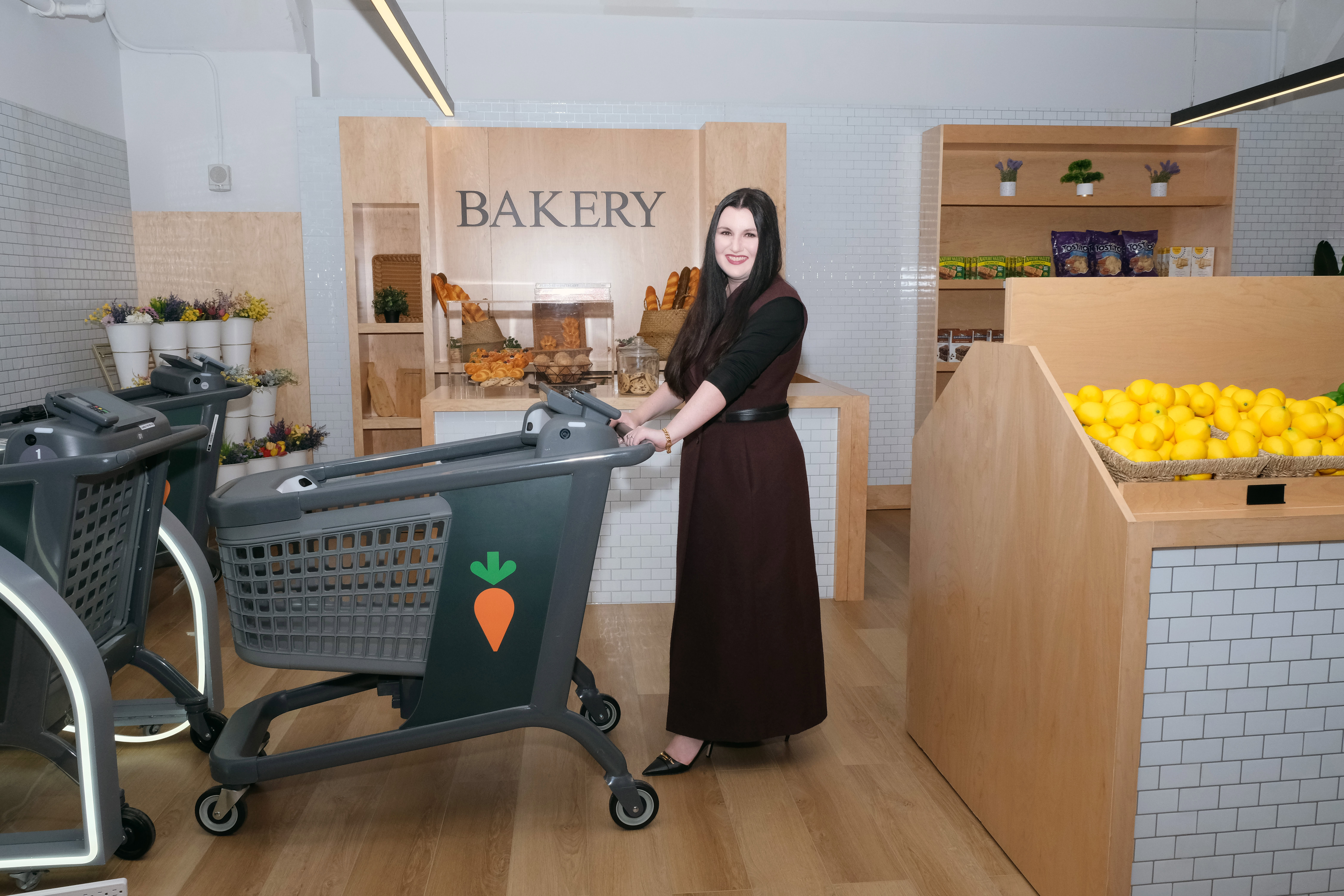
Trying to sneak in unscanned items? Side lights change from green to red—quite the deterrent. You can also use coupons and see real-time, location-based ads on the cart screen.
“We couldn’t stick to just online grocery. Retailers don’t care where shoppers buy—online or in-store. They want an omnichannel experience and a tech partner. That was the missing link.”
Today, Caper Carts are in more than 60 cities across North America and are debuting at Aldi in Austria and Coles in Australia. Talks are underway with several major retailers Grand Frais and Carrefour in France.
4:00 p.m. Growing the Pie with Partners
At Instacart, partnership isn’t just a business strategy—it’s a philosophy. Fidji dedicates time every week to meeting one-on-one with current and prospective partners, and today is no exception. Settled into a conference room, she shares her vision of “growing the pie”—the belief that Instacart’s success depends on helping its partners transform their businesses and better serve their customers.
For Fidji, the best companies are those that lift the entire ecosystem around them. This philosophy has redefined Instacart’s relationship with grocers, forging deeper, more trusted integrations with major retailers across North America. It has even led to unexpected alliances, like a collaboration with Uber Eats, which brought restaurant delivery onto the Instacart platform. Always one step ahead, Fidji sees partnerships not as a division of market share, but as an opportunity to expand it for everyone.
6:00 p.m. The City That Never Sleeps
Late afternoon, clouds drift across the sky. A night owl by nature, Fidji hops into a chauffeured car with her husband and daughter, heading to the Villa Albertine on Fifth Avenue, across from Central Park.
They’re welcomed by Mohamed Bouabdallah, Cultural Counselor of the French Embassy and Director of the Villa Albertine, for a private tour of this literary haven that holds over 14,000 titles from 30 countries.
In this Italian Renaissance-style townhouse, Fidji is welcomed like royalty—or like the patron she is. She’s behind the Arts in the Age of AI residency program, announced in February 2025 by Rachida Dati at the AI Action Summit in Paris.
It supports eight artists or cultural professionals incorporating AI into their work. Residents get personalized artistic and professional support, connecting with tech companies, universities, research centers, and cultural institutions in the U.S.
The family roams through this hub of Franco-American friendship, closed to the public that day.
7:00 p.m. Dinner at the Consulate
Fidji and Mohamed travel five blocks to the French Consulate for a classic French dinner hosted by Cédrik Fouriscot, Consul General of France in New York, and other French diplomats.
In a room of suit-and-tie men used to meeting powerful figures, the casually stylish Fidji answers questions about her journey from Sète to the heights of American business.
Though formal, the dinner is lively, with conversations on AI’s impact across sectors and the global macroeconomic outlook.
Generous as always, Fidji agrees at the end to support another, soon to be announced program aimed at building a Franco-American network of future changemakers.
9:00 p.m. Nighttime Activities
Back at the hotel, the businesswoman returns to her role as wife and mom. Once Willow is asleep, Fidji gets back to work—often until 1 a.m.
Tonight, in addition to her Instacart work, she’s focusing on the Metrodora Institute, a research center she co-founded in 2021, specializing in complex neuroimmune diseases like endometriosis, postural orthostatic tachycardia syndrome (POTS), fibromyalgia, ME/CFS, and long COVID.
She founded Metrodora after struggling to get proper care for her own health issues, including endometriosis and POTS. Personally, investing in the venture alongside a VC fund, she says:
“We focus on those mysterious illnesses where women deteriorate head to toe, and no one knows why.”
Thanks to data collection and AI, they’ve published a study predicting the likelihood of developing long COVID. Once again, artificial intelligence proves to be a powerful accelerator—even in medicine.
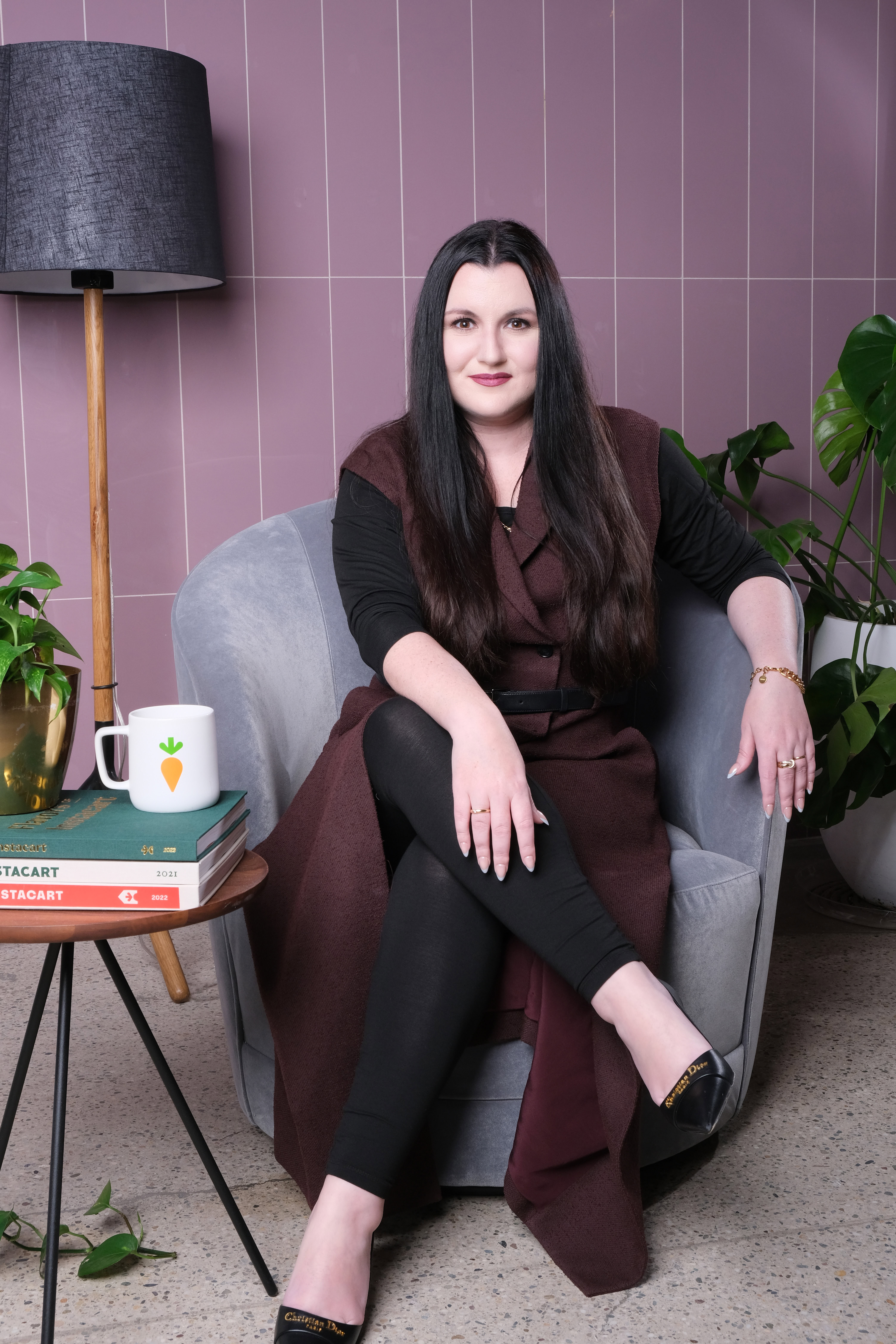
Published by Daphné Segretain

